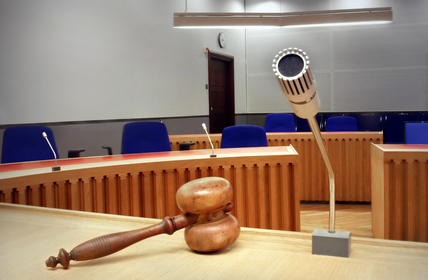If you’ve been arrested and charged with a criminal offence, there is a process that you will have to endure as your case makes its way along. The Criminal Code consists of a wide and varied array of offences; some quite severe and others not so serious.
Regardless of the specific charges against you, a criminal hearing will be one of the early parts of the process. Here’s what you can expect when your initial hearing takes place.

Prior to the Hearing
Before the initial hearing is when you are supposed to retain a criminal lawyer to represent you. Some people choose to represent themselves depending on the severity of the case, but in most cases a criminal lawyer is going to provide many benefits to your case.
At the very least, call a couple lawyers to ask some questions and get a feel for fees and whether they might be able to get you a reduced sentence, or no sentence at all. It’s always a good idea to make your appearances in court with an expert at your side, if possible.
At the First Hearing
At the first hearing, you are brought into a Magistrate’s Court so that the charges against you may be read. In some cases, the prosecution may decide to ask for more time to investigate the situation, but you will usually be read your charges.
This can be a particularly stressful time for someone who is new to courtrooms and especially being charged with criminal offences. It’s also another time when a criminal lawyer provides a big benefit, because you don’t have to go through it alone. What’s more, the person beside you has been through it many times before, so any parts you miss or don’t understand will be covered.
Entering a Plea
Once the charges are read, you will either plead not guilty or guilty. Sometimes, your lawyer will do the talking for you. You and your criminal lawyer will have worked out how you will plead ahead of time. If you plead not guilty, the case will probably be adjourned to another time to start the trial.
After the case is adjourned is when you apply to the Magistrate for bail. In the majority of cases, bail is granted and you’re free to go until your trial begins. In all likelihood, your criminal lawyer will want to keep in touch to formulate a defense so you can hopefully stay out of jail.
If you decide to plead guilty to the charges, the details of your case are read briefly, and if you agree with them, you will be convicted of the crime. After the conviction is read, both the prosecutor will give any relevant criminal background to the Court and then your criminal lawyer will give ant relevant information that may warrant a lighter sentence.
Then, the Court will pass your sentence. In most cases, your criminal lawyer will know with a good degree of certainty what that sentence is going to be, which is why you plead guilty in the first place. The entire plea strategy is always designed to get you the most lenient sentence possible.
Brought to you by Sarah Williams, a criminal advocate enthusiasts. For reliable legal advice and counsultation, she recommends http://www.dvpledge.ca/
What To Expect In A Criminal Hearing

